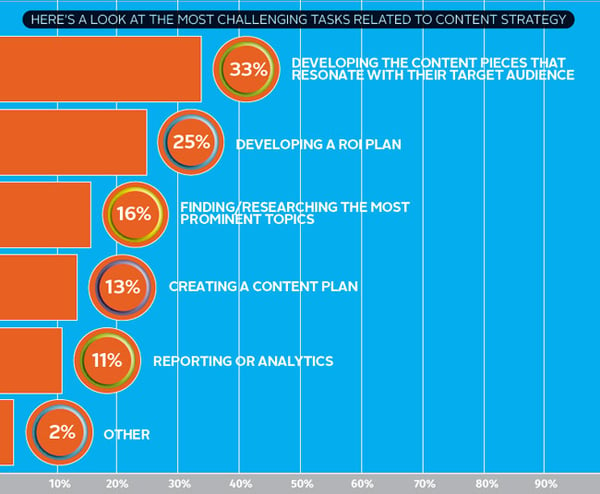
What are three branding rules every marketer should follow?Consistency, persistence and restraint. All of your marketing messages, materials and experiences must be consistent with your brand promise. Inconsistency causes confusion in consumers’ minds, and confusion is the No. 1 brand killer. Brands aren’t built overnight, so be persistent in getting your brand messages in front of consumers. It can be tempting to extend your brand far and wide to build it quickly, but don’t follow every opportunity, or you could dilute your brand. If an opportunity doesn’t match your brand promise or causes you to lose focus on it, don’t pursue it. A focused brand is a strong brand.
Why is customer engagement so important today?
Because people have so much access to information. They can research a brand’s claims and assign value to them instantaneously with a simple search or question posted to social media. In other words, brands must move beyond simply broadcasting messages to building relationships with consumers. That means being authentic.
Focus on entertaining and educating your audience and keep promotion to a minimum. People are good at ignoring ads and marketing messages, but they’re far less likely to ignore useful, meaningful and entertaining messages. Brands that leverage social media marketing, content marketing, live events and experiential marketing, and even email marketing can build relationships based on trust. Those relationships lead to sales, brand loyalty and word-of-mouth marketing, which represent long-term, sustainable, organic growth.
Why is creating an emotional connection with your customers important?
Consumers are inundated with messages from businesses both online and offline today. As a result, it’s more important than ever to build emotional connections between consumers and your brand. Trust matters more than ever.
Consumer emotional involvement theory tells us that as consumers experience a brand and begin to believe in a brand’s promise, they’ll develop an emotional attachment to it. A primary goal of brand building is developing customer loyalty, which comes directly from activities that drive emotional involvement—consistently and persistently delivering your brand message and meeting customer expectations for your brand.
Over time, a consumer’s emotional involvement with a brand grows deeper and evolves into a strong personal connection to that brand. Emotionally involved consumers are the most effective brand ambassadors.

Why is content marketing so important in today’s sales funnel?
It can be used to push consumers through the sales and marketing funnel by addressing needs and problems at different stages of the buying cycle. For example, at the top of the funnel, content can be used to acquire more leads who either don’t know they’re in the market for a product or service or just identified they have a problem.
In the middle of the funnel—the research stage—marketers can use content to nurture them through the decision-making process. At the bottom of the funnel, when consumers are close to making a final decision, marketers can create targeted conversion campaigns filled with content that helps nudge those consumers to make a decision and buy.
By recognizing where a person is in the sales funnel and buying cycle, marketers can use content to answer questions, address needs, and prove that their product or service can solve the problem. Content marketing doesn’t have to be expensive to strategize and execute effectively.
What is the most important piece of advice you’d offer today’s marketing professional?
Stay knowledgeable about marketing and business theory as well as the psychology of consumer behavior. Tools will come and go, but the fundamental principles of marketing and human behavior don’t change much. The challenge is learning how to apply those theories to the new tools and communication opportunities available. To stand out from the crowd, learn marketing and business first and tools second. I’d also recommend learning as much about data and analytics as possible. All companies are obsessed with data, so it’s probably unavoidable that all marketers will need to be able to manipulate data and use it to tell specific stories.
 When you've written 11 marketing-related books that have been translated into multiple languages, you might be on to something. Just ask Susan Gunelius, whose books remain vital resources in universities around the world. In the first half of her 25-year career, Gunelius was instrumental in directing marketing programs for the likes of AT&T and HSBC. Today, the president and CEO of KeySplash Creative spends her days offering strategic branding and content marketing expertise to a wide variety of clients, including Citigroup, Cox Communications, Intuit, and others. We sat down with her to get her thoughts on what it takes to be a marketing expert today.
When you've written 11 marketing-related books that have been translated into multiple languages, you might be on to something. Just ask Susan Gunelius, whose books remain vital resources in universities around the world. In the first half of her 25-year career, Gunelius was instrumental in directing marketing programs for the likes of AT&T and HSBC. Today, the president and CEO of KeySplash Creative spends her days offering strategic branding and content marketing expertise to a wide variety of clients, including Citigroup, Cox Communications, Intuit, and others. We sat down with her to get her thoughts on what it takes to be a marketing expert today.
